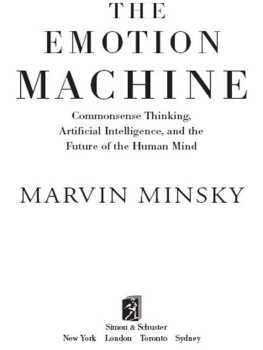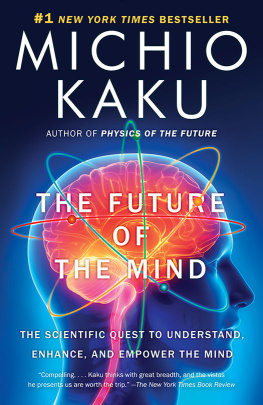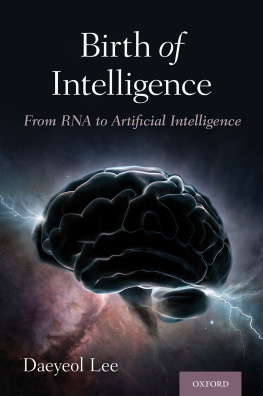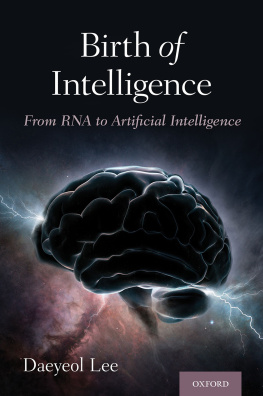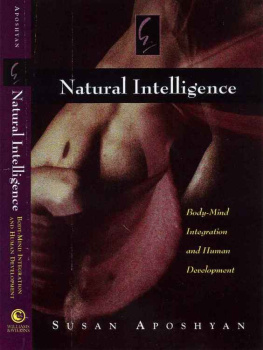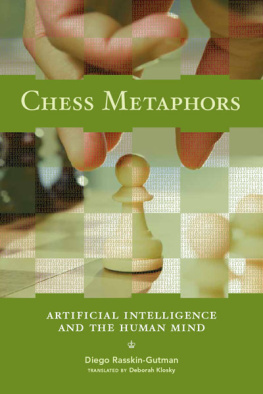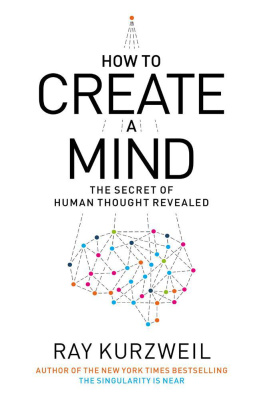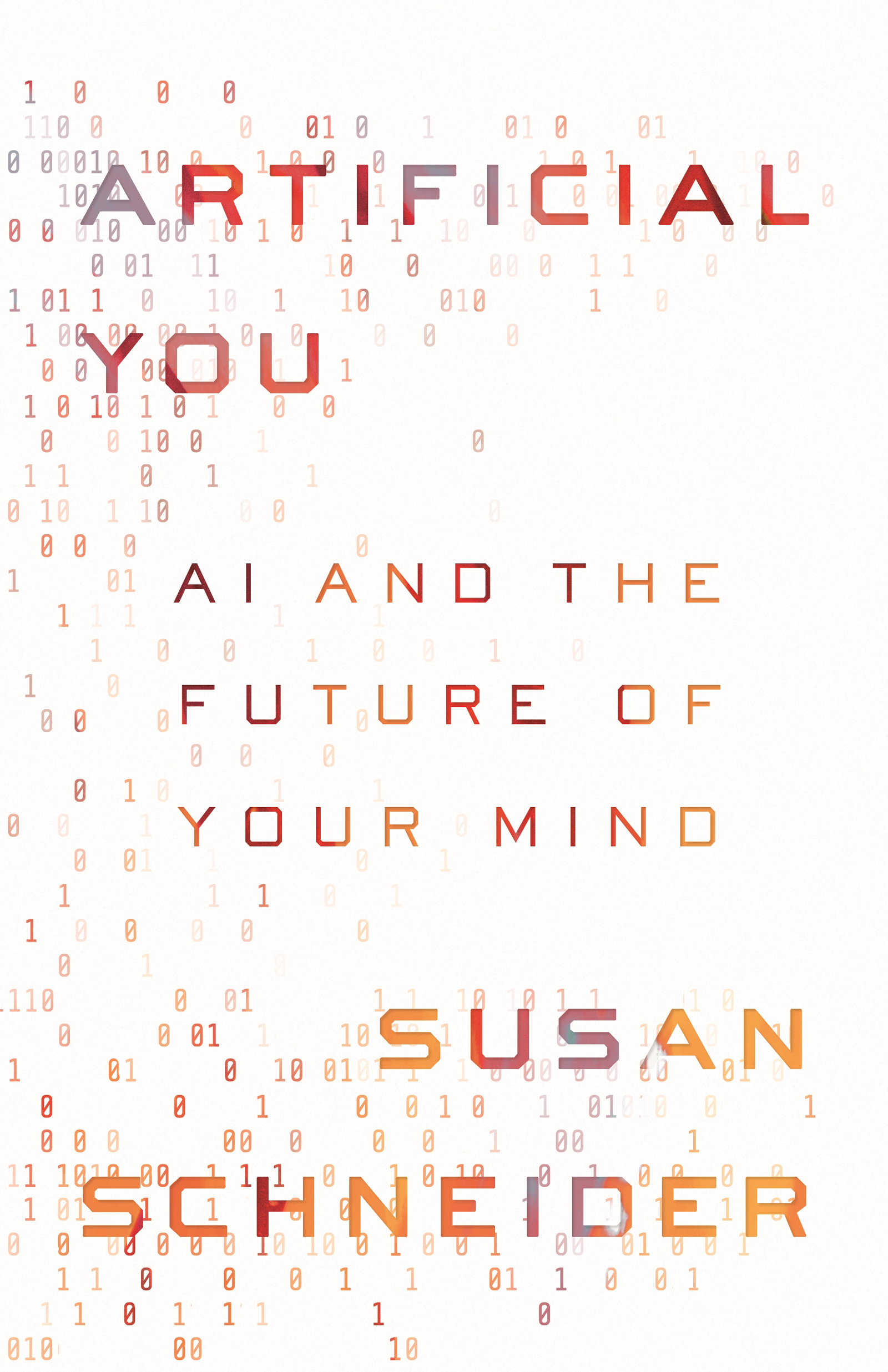ARTIFICIAL YOU
ARTIFICIAL YOU
AI AND THE FUTURE OF YOUR MIND
SUSAN SCHNEIDER
PRINCETON UNIVERSITY PRESS
PRINCETON AND OXFORD
Copyright 2019 by Susan Schneider
Requests for permission to reproduce material from this work should be sent to
Published by Princeton University Press
41 William Street, Princeton, New Jersey 08540
6 Oxford Street, Woodstock, Oxfordshire OX20 1TR
press.princeton.edu
All Rights Reserved
ISBN 9780691180144
eISBN 9780691197777
Version 1.0
British Library Cataloging-in-Publication Data is available
Editorial: Matt Rohal
Production Editorial: Terri OPrey
Text Design: Leslie Flis
Production: Merli Guerra
Publicity: Sara Henning-Stout, Katie Lewis
Copyeditor: Cyd Westmoreland
Jacket design by Faceout Studio, Spencer Fuller
Jacket background: Wizemark / Stocksy
FOR ELENA, ALEX, AND ALLY
CONTENTS
ARTIFICIAL YOU
INTRODUCTION
It is 2045. Today, you are out shopping. Your first stop is the Center for Mind Design. As you walk in, a large menu stands before you. It lists brain enhancements with funky names. Hive Mind is a brain chip allowing you to experience the innermost thoughts of your loved ones. Zen Garden is a microchip for Zen master-level meditative states. Human Calculator gives you savant-level mathematical abilities. What would you select, if anything? Enhanced attention? Mozart-level musical abilities? You can order a single enhancement, or a bundle of several.
Later, you visit the android shop. It is time to buy that new android to take care of the house. The menu of AI minds is vast and varied. Some AIs have heightened perceptual skills or senses we humans lack, others have databases that span the entire Internet. You carefully select the options that suit your family. Today is a day of mind design decisions.
This book concerns the future of the mind. Its about how our understanding of ourselves, our minds, and our nature can drastically change the future, for better or for worse. Our brains evolved for specific environments and are greatly constrained by anatomy and evolution. But artificial intelligence (AI) has opened up a vast design space, offering new materials and modes of operation, as well as novel ways to explore the space at a rate much faster than biological evolution. I call this exciting new enterprise mind design. Mind design is a form of intelligent design, but we humans, not God, are the designers.
I find the prospect of mind design humbling, because frankly, we are not terribly evolved. As the alien in the Carl Sagan film Contact says upon first meeting a human, Youre an interesting species. An interesting mix. Youre capable of such beautiful dreams, and such horrible nightmares. We walk the moon, we harness the energy of the atom, yet racism, greed, and violence are still commonplace. Our social development lags behind our technological prowess.
It might seem less worrisome when, in contrast, I tell you as a philosopher that we are utterly confounded about the nature of the mind. But there is also a cost to not understanding issues in philosophy, as youll see when you consider the two central threads of this book.
The first central thread is something quite familiar to you. It has been there throughout your life: your consciousness. Notice that as you read this, it feels like something to be you. You are having bodily sensations, you are seeing the words on the page, and so on. Consciousness is this felt quality to your mental life. Without consciousness, there would be no pain or suffering, no joy, no burning drive of curiosity, no pangs of grief. Experiences, positive or negative, simply wouldnt exist.
It is as a conscious being that you long for vacations, hikes in the woods, or spectacular meals. Because consciousness is so immediate, so familiar, it is natural that you primarily understand consciousness through your own case. After all, you dont have to read a neuroscience textbook to understand what it feels like, from the inside, to be conscious. Consciousness is essentially this kind of inner feel. It is this kernelyour conscious experiencewhich, I submit, is characteristic of having a mind.
Now for some bad news. The second central thread of the book is that failing to think through the philosophical implications of artificial intelligence could lead to the failure of conscious beings to flourish. For if we are not careful, we may experience one or more perverse realizations of AI technologysituations in which AI fails to make life easier but instead leads to our own suffering or demise, or to the exploitation of other conscious beings.
Many have already discussed AI-based threats to human flourishing. The threats range from hackers shutting down the power grid to superintelligent autonomous weapons that seem right out of the movie The Terminator. In contrast, the issues I raise have received less attention. Yet they are no less significant. The perverse realizations I have in mind generally fall into one of the following types: (1) overlooked situations involving the creation of conscious machines and (2) scenarios that concern radical brain enhancement, such as the enhancements at the hypothetical Center for Mind Design. Lets consider each kind of scenario in turn.
CONSCIOUS MACHINES?
Suppose that we create sophisticated, general-purpose AIs: AIs that can flexibly move from one kind of intellectual task to the next and can even rival humans in their capacity to reason. Would we, in essence, be creating conscious machinesmachines that are both selves and subjects of experience?
When it comes to how or whether we could create machine consciousness, we are in the dark. One thing is clear, however: The question of whether AIs could have experience will be key to how we value their existence. Consciousness is the philosophical cornerstone of our moral systems, being central to our judgment of whether someone or something is a self or person rather than a mere automaton. And if an AI is a conscious being, forcing it to serve us would be akin to slavery. After all, would you really be comfortable giving that android shop your business if the items on the menu were conscious beingsbeings with mental abilities rivaling, or even exceeding, those of an unenhanced human?
If I were an AI director at Google or Facebook, thinking of future projects, I wouldnt want the ethical muddle of inadvertently designing a conscious system. Developing a system that turns out to be conscious could lead to accusations of AI slavery and other public-relations nightmares. It could even lead to a ban on the use of AI technology in certain sectors.
Ill suggest that all this may lead AI companies to engage in consciousness engineeringa deliberate engineering effort to avoid building conscious AI for certain purposes, while designing conscious AIs for other situations, if appropriate. Of course, this assumes consciousness is the sort of thing that can be designed in and out of systems. Consciousness may be an inevitable by-product of building an intelligent system, or it may be altogether impossible.
In the long term, the tables may turn on humans, and the problem may not be what we could do to harm AIs, but what AI might do to harm us. Indeed, some suspect that synthetic intelligence will be the next phase in the evolution of intelligence on Earth. You and I, how we live and experience the world right now, are just an intermediate step to AI, a rung on the evolutionary ladder. For instance, Stephen Hawking, Nick Bostrom, Elon Musk, Max Tegmark, Bill Gates, and many others have raised the control problem, the problem of how humans can control their own AI creations, if the AIs outsmart us. Suppose we create an AI that has human-level intelligence. With self-improvement algorithms, and with rapid computations, it could quickly discover ways to become vastly smarter than us, becoming a superintelligencethat is, an AI that outthinks us in every domain. Because it is superintelligent, we probably cant control it. It could, in principle, render us extinct. This is only one way that synthetic beings could supplant organic intelligences; alternatively, humans may merge with AI through cumulatively significant brain enhancements.



